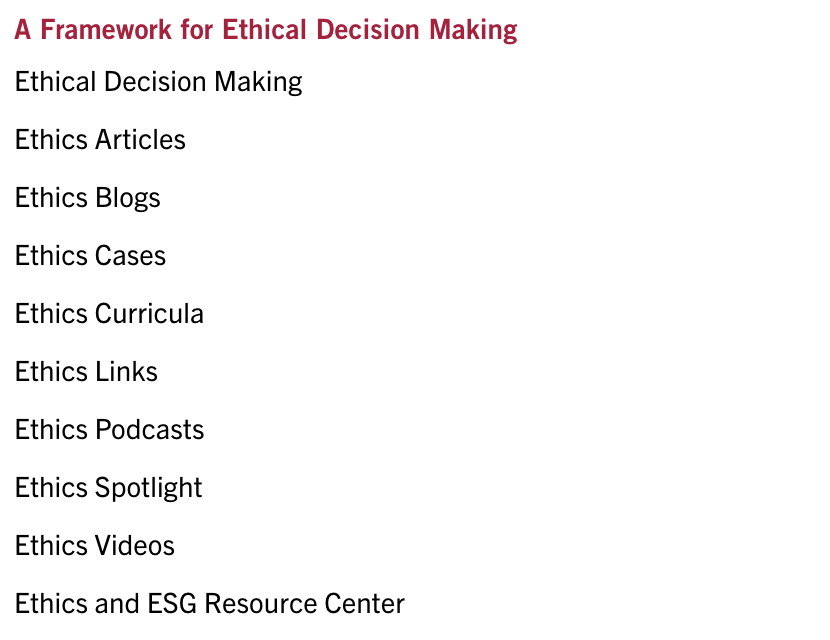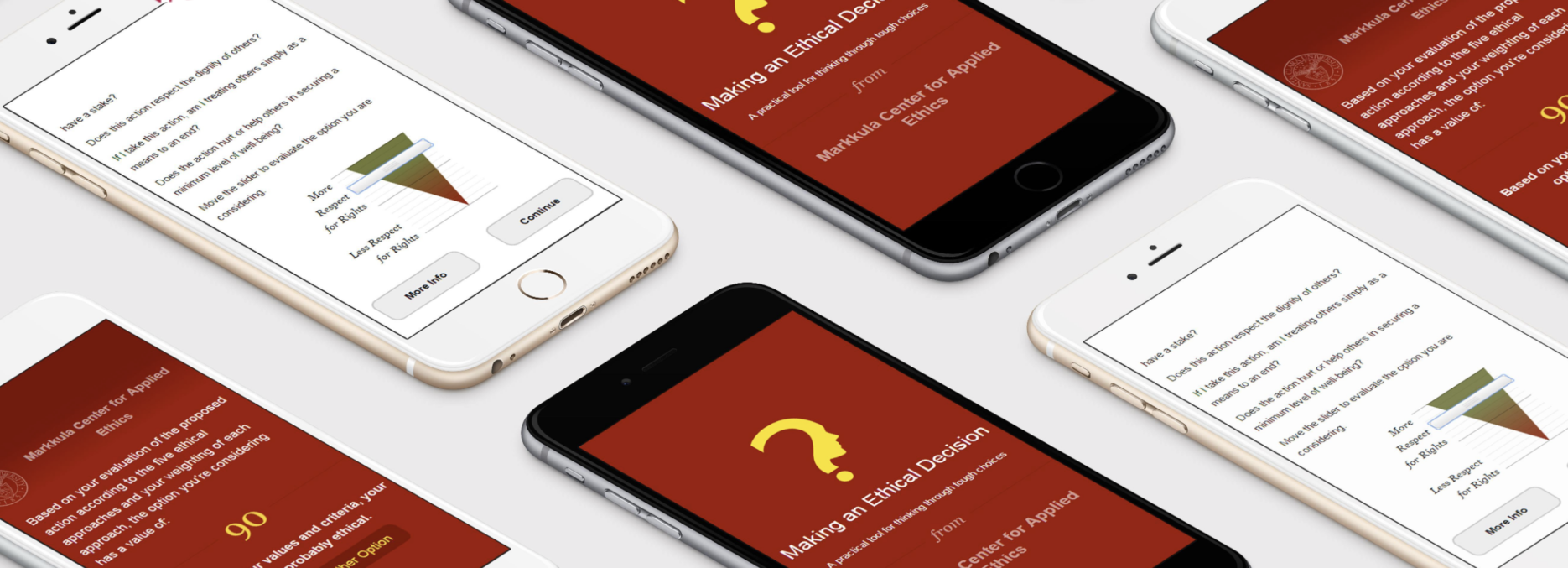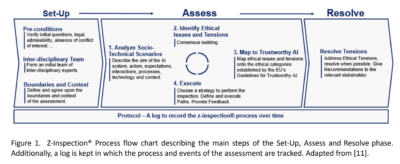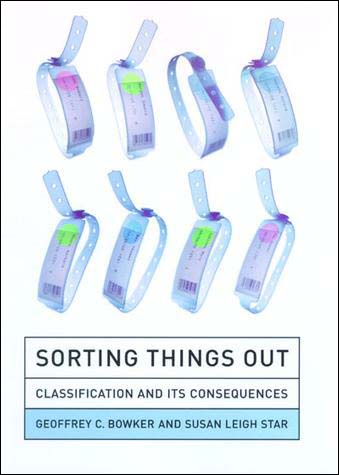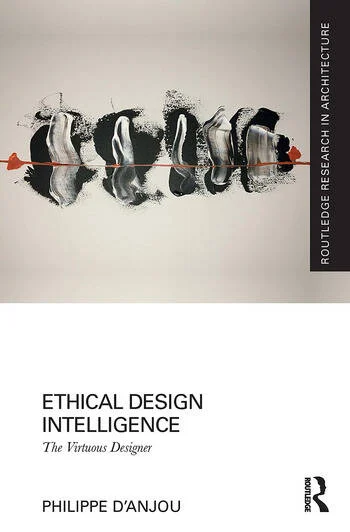https://www.scu.edu/ethics/ethics-resources/
“The following framework for ethical decision-making is intended to serve as a practical tool for exploring ethical dilemmas and identifying ethical courses of action.
Identify the Ethical Issues
- Could this decision or situation be damaging to someone or to some group, or unevenly beneficial to people? Does this decision involve a choice between a good and bad alternative, or perhaps between two “goods” or between two “bads”?
- Is this issue about more than solely what is legal or what is most efficient? If so, how?
Get the Facts
- What are the relevant facts of the case? What facts are not known? Can I learn more about the situation? Do I know enough to make a decision?
- What individuals and groups have an important stake in the outcome? Are the concerns of some of those individuals or groups more important? Why?
- What are the options for acting? Have all the relevant persons and groups been consulted? Have I identified creative options?
Evaluate Alternative Actions
- Evaluate the options by asking the following questions:
- Which option best respects the rights of all who have a stake? (The Rights Lens)
- Which option treats people fairly, giving them each what they are due? (The Justice Lens)
- Which option will produce the most good and do the least harm for as many stakeholders as possible? (The Utilitarian Lens)
- Which option best serves the community as a whole, not just some members? (The Common Good Lens)
- Which option leads me to act as the sort of person I want to be? (The Virtue Lens)
- Which option appropriately takes into account the relationships, concerns, and feelings of all stakeholders? (The Care Ethics Lens)
Choose an Option for Action and Test It
- After an evaluation using all of these lenses, which option best addresses the situation?
- If I told someone I respect (or a public audience) which option I have chosen, what would they say?
- How can my decision be implemented with the greatest care and attention to the concerns of all stakeholders?
Implement Your Decision and Reflect on the Outcome
- How did my decision turn out, and what have I learned from this specific situation? What (if any) follow-up actions should I take?
This framework for thinking ethically is the product of dialogue and debate at the Markkula Center for Applied Ethics at Santa Clara University. Primary contributors include Manuel Velasquez, Dennis Moberg, Michael J. Meyer, Thomas Shanks, Margaret R. McLean, David DeCosse, Claire André, Kirk O. Hanson, Irina Raicu, and Jonathan Kwan. It was last revised on November 5, 2021.“
https://www.scu.edu/ethics/ethics-resources/a-framework-for-ethical-decision-making/
